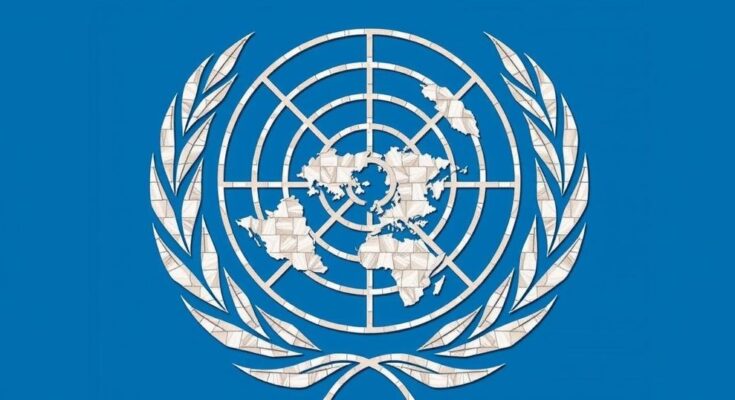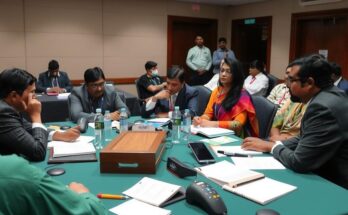The 29th UN Climate Conference (COP29) in Baku, Azerbaijan, is underway, bringing together nearly 200 nations. Key discussions focus on establishing a new climate finance goal exceeding the previous $100 billion pledge, amid concerns over the absence of leaders from major polluting countries. The implications of recent U.S. elections introduce further uncertainty, underscoring the urgency for enhanced international cooperation and financial commitments for climate action.
The 29th Conference of the Parties (COP29) to the UN Framework Convention on Climate Change commenced in Baku, Azerbaijan, uniting delegates from nearly 200 nations. Alden Meyer from the climate think tank E3G offered insights into the conference’s tense atmosphere, primarily stemming from the necessity to establish a new climate finance goal. The absence of leaders from major polluting nations such as the United States and China exacerbates concerns over global climate action amidst the impending urgency to meet the Paris Agreement targets. The issue of financing, particularly for developing countries, is paramount, as they seek a commitment that surpasses the previous $100 billion annual pledge. Additionally, the political implications of the recent U.S. elections cast uncertainty over the country’s role in forthcoming negotiations. This COP highlights the critical nature of collaboration and the need for increased funding to combat climate-related challenges and advanced adaptation strategies. Moreover, the discussions address the urgent need for nations to elevate their commitments to reducing greenhouse gas emissions, given that current trajectories risk harmful global temperature increases. Stakeholders emphasize the importance of solidifying trust in the international climate process, with the aspiration that efforts can yield substantial dividends for both mitigation and resilience against the impacts of climate change.
The UN Climate Change Conferences, or COPs, are pivotal annual meetings where countries come together to address global climate change challenges. The 29th COP is particularly vital due to the pressing need for international cooperation in finance, especially to support developing nations in addressing both mitigation and adaptation to climate change. With the potential impacts of climate change intensifying and prior financial commitments inadequately addressed, COP29 serves as a platform to negotiate necessary augmentations to financial aid and restructuring involvement among wealthy nations.
In summary, COP29 represents a critical juncture for global climate action, with discussions focusing on securing enhanced financing for mitigation and adaptation efforts, especially for developing countries. The political landscape, notably the implications of U.S. leadership under Donald Trump’s potential second presidency, presents additional challenges for fostering collaborative and effective climate policy. As nations grapple with the urgency of reducing emissions and adapting to climate impacts, the outcomes from this conference may significantly influence future global climate dynamics.
Original Source: www.loe.org




